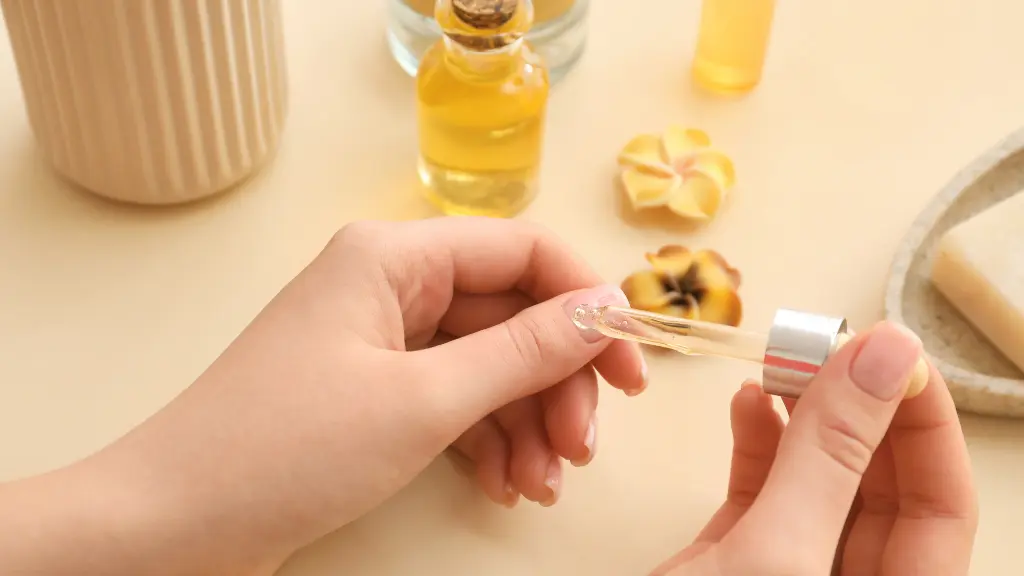Cracked cuticles are a common problem, but many people don’t realize the potential risks associated with them. While they may seem like a minor inconvenience, cracked cuticles can lead to more serious issues, including pain, infection, and long-term nail problems.
Understanding the causes of cracked cuticles, their possible complications, and how to care for them is essential for maintaining overall hand health.
You May Also Like: Is Charcoal Toothpaste Safe for My Teeth? Here’s What You Need to Know
What Are Cuticles and Why Are They Important?
The cuticles are the thin layer of skin that borders the base of your nails. They play an essential role in protecting the nail matrix, which is the part of the nail that produces new cells. Healthy cuticles help prevent bacteria and other harmful substances from entering the nail bed, reducing the risk of infections.
When cuticles become damaged or cracked, they lose their protective function, making the skin more vulnerable to environmental factors like bacteria, fungi, and dirt. This can lead to various complications that may affect the health of your nails and skin.
What Causes Cracked Cuticles?
There are several reasons why cuticles become cracked or damaged. These include:
- Dry Skin: One of the leading causes of cracked cuticles is dry skin. Cold weather, low humidity, and frequent hand washing can all contribute to dry, flaky skin around the nails. When the skin loses moisture, it becomes brittle and prone to cracking.
- Frequent Hand Washing: While hand washing is essential for hygiene, excessive washing can strip the skin of its natural oils. This can leave the skin around the cuticles dry and cracked. The use of harsh soaps or sanitizers can also exacerbate the problem.
- Nail Biting and Picking: Biting your nails or picking at your cuticles can cause physical damage to the skin, leading to cracks and tears. This habit can also introduce bacteria into the skin, increasing the risk of infection.
- Infections: Fungal or bacterial infections can weaken the cuticle, causing it to crack. Infections may occur when the cuticle is damaged, allowing germs to enter and infect the area.
- Lack of Moisture: Not moisturizing your hands or cuticles regularly can result in dryness and cracking. This is particularly common in colder months or in environments with low humidity.
- Chemical Exposure: Harsh chemicals, such as those found in cleaning products or nail polish removers, can irritate the skin around the nails. Prolonged exposure to these chemicals can cause the cuticles to crack and become inflamed.
Are Cracked Cuticles Harmful?
While cracked cuticles may not always be a major health concern, they can lead to several complications if left untreated. Here are some of the potential risks associated with cracked cuticles:
- Infections: The most significant risk of cracked cuticles is infection. When the skin is broken, it provides an entry point for bacteria or fungi. This can lead to conditions like paronychia, which is an infection of the skin around the nails. Infections may cause redness, swelling, pain, and pus to form around the cuticle. In severe cases, the infection can spread, leading to more serious health problems.
- Pain and Discomfort: Cracked cuticles can be painful, especially when they are deep or infected. The area may become sore, making everyday tasks like typing, gripping, or washing your hands uncomfortable. In some cases, the cracked skin can bleed, further exacerbating the pain.
- Nail Damage: Damaged cuticles can affect the growth and health of your nails. Without proper protection, the nail matrix may become exposed to harmful bacteria or chemicals, leading to irregular nail growth, discoloration, or even permanent nail damage.
- Long-Term Skin Problems: If cracked cuticles aren’t properly treated, the skin may become increasingly dry and irritated. This can lead to chronic skin issues, such as eczema or dermatitis, which can make your hands look and feel unhealthy.
How to Prevent and Treat Cracked Cuticles
Thankfully, cracked cuticles are treatable, and with proper care, you can prevent them from becoming a serious problem. Here are some tips to help protect your cuticles and keep them healthy:
- Moisturize Regularly: One of the best ways to prevent cracked cuticles is to keep your hands and cuticles moisturized. Apply a rich hand cream or cuticle oil daily, especially after washing your hands. Look for products that contain nourishing ingredients like shea butter, vitamin E, or jojoba oil.
- Use Gentle Soap: Choose mild, moisturizing soaps that won’t strip your skin of its natural oils. Avoid harsh, antibacterial soaps that can dry out the skin around your nails. After washing, always apply a moisturizer to lock in moisture.
- Wear Gloves: If you’re doing household chores or working with chemicals, wear gloves to protect your hands and cuticles. This is particularly important when using cleaning products, as they can be very drying to the skin.
- Avoid Nail Biting and Picking: If you have a habit of biting your nails or picking at your cuticles, try to break it. These behaviors can damage your cuticles and introduce bacteria, leading to cracks and infections. Keep your hands busy by fidgeting with something else or using stress-relief techniques.
- Trim Cuticles Carefully: If you trim your cuticles, make sure to do so gently. Avoid cutting them too deeply, as this can create an opening for infections. If you’re unsure how to trim your cuticles, consider visiting a professional manicurist.
- Stay Hydrated: Drinking plenty of water is essential for keeping your skin hydrated from the inside out. Proper hydration helps maintain healthy skin, including the skin around your cuticles.
- Seek Treatment for Infections: If you notice signs of infection, such as redness, swelling, or pus around the cuticle, seek medical treatment immediately. Your doctor may prescribe antibiotics or antifungal medication to treat the infection and prevent it from spreading.
When to See a Doctor
In most cases, cracked cuticles can be treated with home remedies and basic hand care. However, if the cracks become infected or if you experience severe pain, swelling, or pus, it’s important to seek medical attention. A doctor or dermatologist can diagnose and treat any underlying infections and provide advice on how to promote healing.
Conclusion
Cracked cuticles are not just a cosmetic concern; they can lead to pain, infection, and long-term damage if left untreated. By moisturizing regularly, protecting your hands from harsh chemicals, and avoiding nail-biting, you can reduce the risk of cracked cuticles. If an infection occurs, it’s important to seek prompt treatment to avoid further complications.
With proper care, your cuticles can stay healthy, helping you maintain beautiful, strong nails and hands.












[…] You May Also Like: Are Cracked Cuticles Harmful? […]